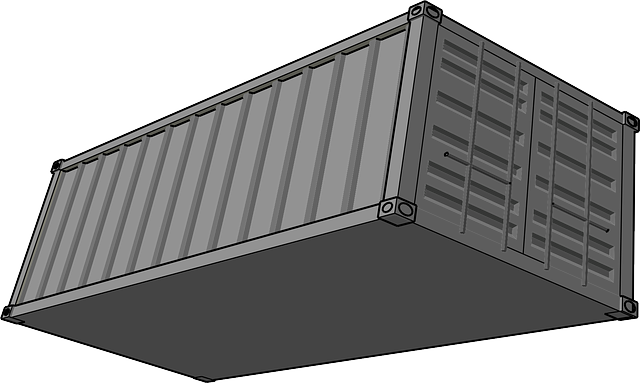Small business owners face challenges in staying compliant with insurance requirements, driven by federal and state mandates like the Workers' Compensation Act and OSHA standards. Understanding varying state laws on liability coverage, assessing unique business risks, and securing tailored insurance policies (including general and professional liability) are crucial to avoid fines, protect against lawsuits, and maintain operational continuity. Regular policy reviews ensure businesses remain protected as their risk profiles change. Staying informed about evolving legal landscapes and regulatory bodies is vital for optimal liability coverage without over-insuring.
Staying compliant with state and federal insurance requirements is essential for any business owner. This comprehensive guide breaks down the intricate landscape of insurance mandates, focusing on liability coverage—crucial for protecting your small business from financial ruin. From understanding diverse regulatory landscapes to navigating compliance strategies and avoiding pitfalls, you’ll discover practical steps to ensure your business is adequately insured. By implementing these insights, small businesses can confidently manage risks and thrive.
Understanding State and Federal Insurance Mandates

Staying compliant with state and federal insurance requirements is a complex task, especially for small business owners who juggle multiple responsibilities. To navigate this landscape, it’s crucial to grasp both general and specific mandates. On a federal level, the Workers’ Compensation Act mandates coverage for workplace injuries, while the Occupational Safety and Health Administration (OSHA) enforces standards that indirectly influence insurance needs. State laws further complicate matters with varying requirements on liability coverage for small businesses, including professional services, retail operations, and manufacturing facilities.
Understanding these mandates is the first step towards securing adequate liability coverage. Business owners should consult industry-specific guidelines and legal experts to ensure they meet all applicable standards. This proactive approach not only avoids hefty fines but also protects against potential lawsuits by providing a safety net through comprehensive insurance policies tailored to each business’s unique risks and operations.
Identifying Your Business's Specific Liability Coverage Needs

Identifying your business’s specific liability coverage needs is a crucial step in ensuring compliance with state and federal insurance requirements. Every business, regardless of size or industry, faces unique risks. As such, liability coverage for small businesses should be tailored to mitigate these risks effectively. Start by evaluating the types of activities your business engages in, the potential hazards associated with these activities, and the likelihood of injuries or damages occurring. For instance, a restaurant would require coverage for food poisoning incidents, while a construction company needs protection against workplace accidents and equipment failures.
Understanding your industry’s legal landscape and regulatory bodies is equally important. Different states have varying insurance mandates, and federal laws may also apply depending on your business activities. Stay informed about these requirements to avoid costly penalties and maintain operational continuity. Regularly reviewing and updating your liability coverage policy ensures that your business remains shielded against emerging risks and changing legal obligations.
Strategies for Achieving Compliance: A Step-by-Step Guide

Achieving compliance with state and federal insurance requirements can be a complex task, but implementing a structured approach simplifies the process. Here’s a step-by-step guide to help small business owners navigate this crucial aspect of risk management:
1. Identify Applicable Requirements: Begin by understanding which federal and state laws apply to your industry and business size. Federal regulations often provide a baseline, while states may have additional mandates, particularly for liability coverage for small businesses. Researching specific insurance requirements is essential, as they can vary widely across jurisdictions.
2. Assess Risk and Coverage Needs: Evaluate the potential risks your business faces daily. Identify hazards unique to your industry and location. For example, a construction company might require more comprehensive liability coverage than a retail store. Understanding these risks allows for tailored insurance solutions, ensuring adequate protection without over-insuring.
3. Secure Necessary Insurance Policies: Based on your assessment, procure the appropriate insurance policies. Common options include general liability insurance, professional liability (or errors and omissions) coverage, workers’ compensation insurance, and business owners’ policies. Each serves a distinct purpose in mitigating risks associated with your operations. For instance, general liability covers accidents on your premises, while professional liability protects against claims related to professional services.
4. Review and Update Policies Regularly: Insurance needs can change over time as your business grows or operates in different locations. Schedule regular reviews of your policies to ensure they remain adequate and aligned with current laws. This step is vital for small businesses, as it helps avoid gaps in coverage that could leave the company vulnerable to significant financial losses.
Common Pitfalls to Avoid When Managing Insurance Requirements

Many small business owners overlook certain aspects of insurance management, leading to significant risks and potential legal issues. One of the most common pitfalls is inadequate liability coverage. It’s crucial for small businesses to understand their exposure to lawsuits and claims, especially in today’s litigious environment. Carrying insufficient liability coverage can leave a business vulnerable to financial ruin if an unexpected lawsuit or incident occurs. For instance, a company might believe its general liability policy covers all potential risks, only to discover gaps when faced with a legal claim related to customer injuries on their premises.
Another trap to avoid is non-compliance with state and federal regulations. Insurance requirements vary across jurisdictions, and failure to meet these standards can result in hefty fines and legal consequences. Federal laws often mandate specific coverage for certain industries, while state laws may have unique provisions regarding minimum policy limits and required endorsements. Business owners should stay informed about these regulations and consult experts to ensure their insurance policies align with all applicable requirements, especially when operating across multiple states.
Ensuring compliance with state and federal insurance requirements is a crucial step towards safeguarding your small business’s future. By understanding the specific mandates, identifying your unique liability needs, and following a structured guide, you can navigate this process efficiently. Avoid common pitfalls by staying informed and proactive. Remember, adequate liability coverage is not just a legal necessity; it’s an investment in peace of mind and the long-term success of your business.
